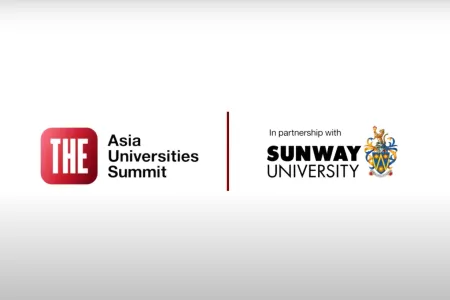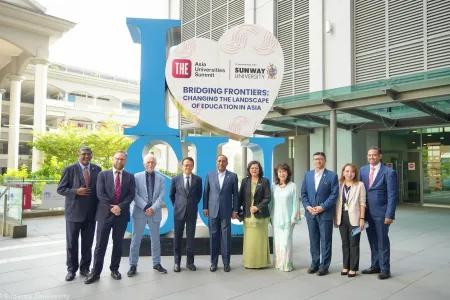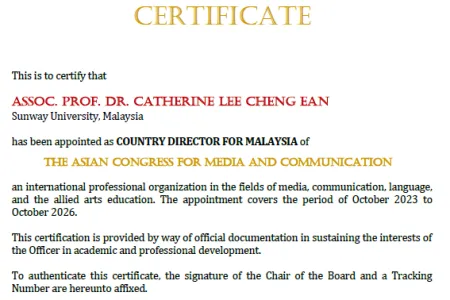Dr Yong Min Hooi Awarded Newton-Ungku Omar Fund
The School of Science and Technology is delighted to announce that Dr Yong Min Hooi (Senior Lecturer at the Department of Psychology) and her collaborator, Professor Louise Phillips (Chair in Psychology at the School of Psychology, University of Aberdeen, UK), have been awarded a £128,461 grant by the prestigious Newton-Ungku Omar Fund for their project “Social Cognition and Executive Function Among Older Adults in the UK and Malaysia: Links to Socio-economic Factors”. Other collaborators of the project are Dr Alexandre Schaefer (Associate Professor at the Department of Psychology, Jeffrey Cheah School of Medicine and Health Sciences, Monash University Malaysia) and Professor Benjamin Tatler (Chair in Psychology at the School of Psychology, University of Aberdeen, UK).

The Newton Fund is delivered by 15 UK delivery partners in collaboration with funders in 18 partnering countries. They develop and run calls, allocate and manage the money they receive as part of the Newton Fund. Out of the 319 eligible applications for the April 2017 call (opened to only 8 countries), a total of 53 projects were awarded. Among these funded projects, only six were awarded to institutions from Malaysia.
The Newton Fund in Malaysia is known as Newton Ungku-Omar Fund (NUOF). The NUOF is a bilateral collaboration of the UK and Malaysian governments to promote science, technology and innovation collaboration. This Institutional Link grant in Malaysia is delivered by the MIGHT (Malaysia Delivery Partner) and British Council (UK Delivery Partner).
Dr Yong's project aims to:
- Identify the effects of age (young vs old adults) and culture (Western vs Asian) on interpretation of social cues across a range of different measures of social cognition, and executive function across different cognitive measurements.
- Look at the relationship between SES, social cognition and executive function in UK and Malaysian samples.
- Explore the effects of age and culture on both explicit judgments about other people and lower-level attention to social cues using behavioural and eye-tracking measures.
- Translate into primary Malaysian languages (Malay, Mandarin, Tamil) and then characterise performance on standard social cognition tasks in an old age Malaysian sample.
- Explore the relationship between social cognition performance in old age and social isolation and life satisfaction in both cultures.






